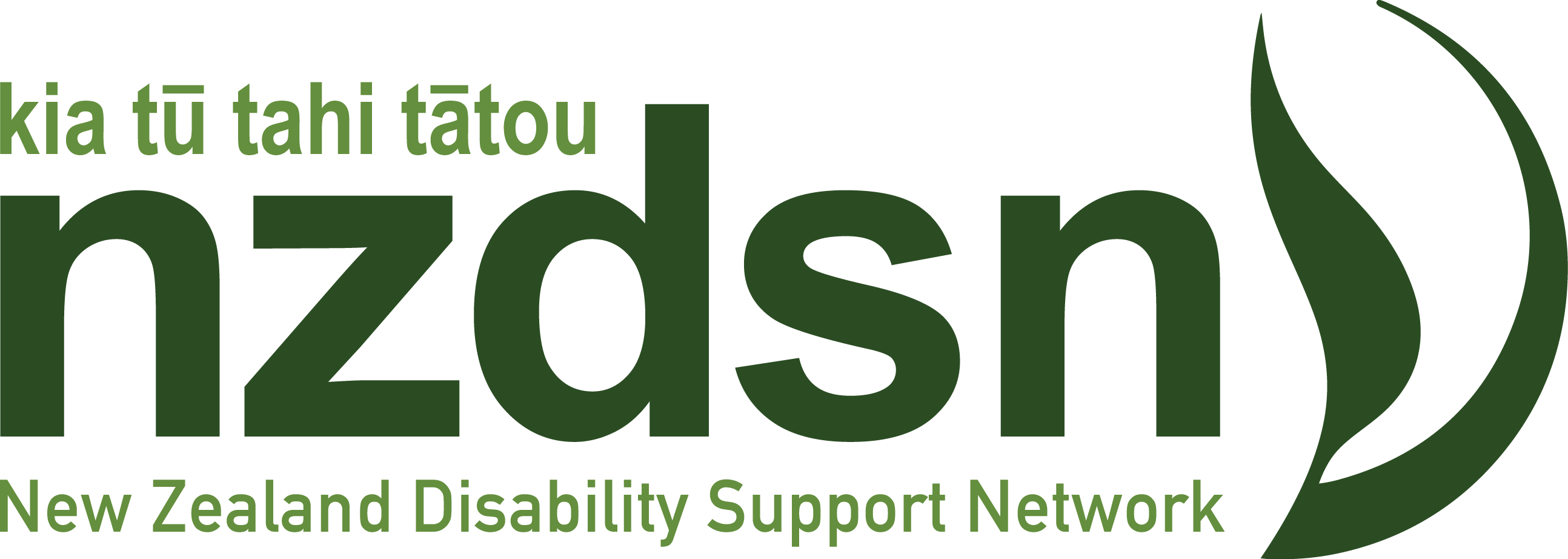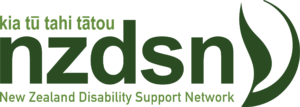NZDSN COVID-19 UPDATE APRIL 3rd
Kia ora NZDSN Members
It has been a rollercoaster week and in this update we will do our best to bring clarity where we can, let you know what we are focused on and ask for information about how things are working on the ground for you. And a huge shout out to a sector that is really getting onto things – solution focused, reaching out to assist others and working together – awesome!
Personal Protective Equipment (PPE)
Now that support workers are formally recognised as an essential service the provision of PPE is getting under way through DHBs. We are discovering that implementing an effective supply chain may become a mixed bag as DHBs come to grips with the sheer number of sites that will require initial and then ongoing delivery. We are already hearing about variable performance so please let us know what your experiences are. For those that missed it last time attached to this update is a list of the DHB contacts for PPE supplies.
There is still confusion about what PPE is required in what situations. It is acknowledged that support workers should be able to wear masks if this makes them feel safe even if the situation does not clinically require this. There is some work happening to update guidance specifically for community settings where support workers are moving across more than a single “bubble” in their working day and where the PPE requirements may vary in each setting, and take account of people who may not understand things like social distancing.
Ministry of Health DSS Financial Assistance Package
This is being worked on as an urgent priority and the intention is that it includes funding for the backfilling of all those staff you have stood down on paid leave (those over 70 and those with at risk health conditions) in addition to surety of funding through until September, as well as other COVID-19 related costs. This means you don’t have to apply for the wage subsidies through MSD, including the latest addition of subsidies for essential workers. Some information on the Ministry assistance package was sent out recently and there is more to come soon, but we have reiterated repeatedly the urgency as some providers are already anxious about being able to make the next pay run. If this is your situation, please contact the Ministry immediately.
MSDs financial Assistance package includes continuity of funding for community participation programmes and an opportunity to apply for additional funding to support people in different ways – while facilities may have closed, programmes are still expected to operate to the extent they can. For employment support programmes, an advance payment to June is being made based on recent invoicing. This appears to be working for some, but not others –contact MSD if this is not the case. And if you are in this position please let us know the details as we will be talking to MSD about this.
Workforce Supply Issues
While workforce supply does not appear to be an issue (providers are reporting a surge in people applying for vacancies) the recruitment/on-boarding and orientation/induction in an online environment may provide some particular challenges for some – especially if it is for a higher number of vacancies than is usual. There is also the question of directing excess supply to where vacancies are not being filled. Some providers will have internal capacity and capability to handle this situation and some are already well down the track of online recruitment and induction that includes getting the level 2 qualification while the person is on a required 14day isolation period.
We are looking at what local cross agency approaches or collaborations might share the load in this space, especially in terms of the online induction process and what resources might be needed to support this effort. Some of this may already be happening informally so please get in touch if you have any ideas or thoughts to offer that might facilitate such a development.
As well as your usual recruitment processes consider online platforms such as: e-Mploy.org.nz and mycare.org.nz (which are now available to providers). The Ministry also has its own on line portal where over 700 people have already signed up to be considered for support work. You can also register your workforce needs here as well. The links are:
https://www.health.govt.nz/news-media/media-releases/ministry-seeks-expressions-interest-health-and-care-professionals-covid-19-response
https://www.health.govt.nz/our-work/diseases-and-conditions/covid-19-novel-coronavirus/covid-19-novel-coronavirus-information-specific-audiences/covid-19-novel-coronavirus-resources-health-professionals/expressions-interest-covid-19-response
Attached to this update are some easy to use tools that may assist new recruits to quickly get up to speed with the kinds of approaches and relationships we want people to have with the people they will be supporting. This includes guidance on developing “one page profiles” for staff and people being supported.
Supported Living – some specific challenges.
DPOs have reported to us people in supported living settings experiencing isolation and vulnerability who now only receive a few hour’s support. It’s important that providers reach out to this group rather than individuals having to chase support – and 0800 numbers need to be easy to use – a simple message to say “state your name and someone will be in touch soon” rather than telling people to phone other numbers.
Adapted approaches will often be needed that get around limitations with cell phone data; the absence of cash handling for those without cards; and negotiating the rules (which keep changing) for shopping at supermarkets. Getting priority delivery of groceries requires online banking and internet access so alternatives may need to be considered – and developed in ways that don’t expose people to potential financial abuse and COVID-19 transmission. We are keen to share ideas providers have developed in response to these challenges.
Grocery Shopping
There is no coherent approach nationally or across different supermarket chains that takes account of peoples varying circumstances. Some disabled people have access to priority delivery, but this requires internet access and electronic payment. Essential workers have priority in queues at some supermarkets, but need to either be in uniform or have employer photo ID (and this may not cover shopping for others). Some supermarkets have priority shopping hours for disabled people and others with particular needs, but at the “convenient” times of 7-8am.
There is some work going on between the Ministry of Health and MBIE to get a nationally consistent system of supports across both supermarket chains. Until this happens we suggest two things:
- Approach your local supermarket managers, explain your particular needs (as providers and for the people you serve) and negotiate something that will work to make grocery shopping “accessible for all.” And let us know how you get on.
- Contact your local Civil Defence Emergency Response Group/Team (0800779997).They are organising teams of volunteers to assist those who need support with activities like grocery shopping. Many will have a designated coordinator for disability support. Again, let us know how you get on.
Regional Network Zoom Meetings
These start next week (8th April) and are followed by a catch up on the following day between regional coordinators and NZDSN. This allows us to spread good ideas and resources around nationally and also to have a consolidation of issues we need to be raising at a national level. A huge thank you to our regional coordinators for setting these sessions up.
We have several meetings each week with a range of senior officials and are now meeting weekly with Ministers Salesa and Sepuloni.
“Essential Moves”
The Ministry is working on guidelines and protocols for people who have to move due to a variety of circumstances where there is no other option. More on this as it comes to hand.
Useful Ideas and Resources
We are happy to receive these so that we can put them on the NZDSN website so that they can be available to everyone.
People First has been working closely with the government to translate important documents into easy read. Here are links to the information:
- The Easy Read on this page, which includes 1 MoH factsheet, 3 posters and 2 mental health resources: https://www.peoplefirst.org.nz/easy-read-information-about-coronavirus-also-known-as-covid-19/
- The Easy Read on this page, which includes 2 docs from MSD (more are coming and will be added over the next few days: https://www.peoplefirst.org.nz/easy-read-messages-from-work-and-income-during-covid-19/
Kia tu tahi tatou
The Team at NZDSN

